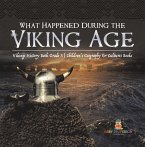"Scandinavia What?" unravels the fascinating transformation of Nordic countries from Viking strongholds to bastions of social democracy and innovation. This comprehensive exploration delves into the evolution of Scandinavian political systems, the development of their renowned welfare states, and their emergence as global leaders in technology and sustainability.
The book argues that a unique blend of political stability, social cohesion, and economic pragmatism has enabled these nations to navigate modern challenges with remarkable success. Structured chronologically, the book traces Scandinavia's journey from the early 20th century to the present day, examining how these countries established comprehensive welfare systems and adapted to globalization.
It highlights intriguing facts, such as how Scandinavian nations have consistently ranked among the happiest and most equitable societies globally, while also becoming pioneers in environmental policy and digital innovation. The author's balanced approach avoids romanticization, instead offering a nuanced analysis of the region's strengths and challenges.
Drawing on a rich tapestry of historical documents, economic data, and interviews, "Scandinavia What?" provides valuable insights for students, policymakers, and general readers alike. By exploring the Nordic model's successes and ongoing debates about its sustainability, the book offers practical lessons that could be adapted to address global issues such as inequality, climate change, and technological disruption.
The book argues that a unique blend of political stability, social cohesion, and economic pragmatism has enabled these nations to navigate modern challenges with remarkable success. Structured chronologically, the book traces Scandinavia's journey from the early 20th century to the present day, examining how these countries established comprehensive welfare systems and adapted to globalization.
It highlights intriguing facts, such as how Scandinavian nations have consistently ranked among the happiest and most equitable societies globally, while also becoming pioneers in environmental policy and digital innovation. The author's balanced approach avoids romanticization, instead offering a nuanced analysis of the region's strengths and challenges.
Drawing on a rich tapestry of historical documents, economic data, and interviews, "Scandinavia What?" provides valuable insights for students, policymakers, and general readers alike. By exploring the Nordic model's successes and ongoing debates about its sustainability, the book offers practical lessons that could be adapted to address global issues such as inequality, climate change, and technological disruption.
Dieser Download kann aus rechtlichen Gründen nur mit Rechnungsadresse in A, B, BG, CY, CZ, D, DK, EW, E, FIN, F, GR, H, IRL, I, LT, L, LR, M, NL, PL, P, R, S, SLO, SK ausgeliefert werden.









